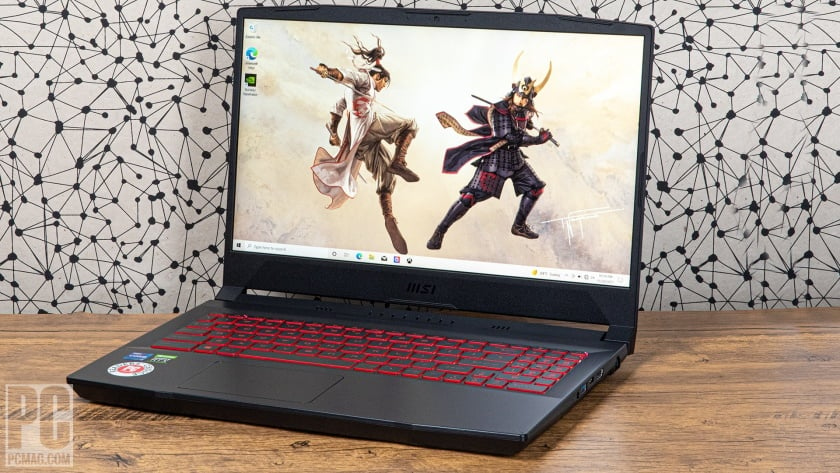There are many factors to consider when looking for the best gaming laptop, such as the processor, graphics card, and overall performance. In general, it’s difficult to find a high-quality gaming laptop that is also cheap. However, there are a few options that may meet your needs and budget. Here are a few things to consider when looking for a budget gaming laptop:
- Look for laptops with entry-level graphics cards, such as the NVIDIA GeForce GTX 1650 or AMD Radeon RX 560. These graphics cards can handle most modern games at low to medium settings.
- Consider an AMD processor. AMD processors tend to be more affordable than Intel processors, and they can still provide good performance for gaming.
- Look for laptops with a solid-state drive (SSD) instead of a hard drive. SSDs are faster and more reliable than hard drives, which can improve your overall gaming experience.
- Consider purchasing a refurbished or pre-owned laptop. These laptops have often been gently used and can be a more affordable option. Just be sure to buy from a reputable source and check the warranty and return policy before making your purchase.
It’s important to note that you may have to compromise on some features or performance in order to get a budget gaming laptop. However, with careful research and consideration of your needs, you should be able to find a laptop that meets your needs and budget.
How Much Ram Do I Need for Gaming?
The amount of RAM you need for gaming depends on the type of games you play and the performance you want. In general, 8GB of RAM is sufficient for most modern games and should allow for smooth gameplay on 1080p resolution with medium to high settings. However, if you want to play games at higher resolutions or with more demanding graphics settings ware area51 threadripper, you may need more RAM.
For example, if you want to play games at 4K resolution or with very high graphics settings, you may need 16GB or more of RAM. Some games may also require more RAM, especially if they are poorly optimized or have particularly large and detailed game worlds.
It’s worth noting that the amount of RAM you have can also affect the performance of other applications and programs running on your computer. If you tend to run multiple programs at the same time, or if you use resource-intensive applications such as video editing software, you may want to consider getting more RAM to ensure that your computer can handle the workload.
In summary, 8GB of RAM is generally sufficient for most gaming needs, but if you want to play very demanding games or use resource-intensive applications, you may want to consider getting more RAM.
What Happens if You Have Too Much Ram?
Having more RAM than your computer needs is not necessarily a bad thing, as it can provide a performance boost in certain situations. When your computer has more available RAM, it can access data stored in memory more quickly, which can improve the overall performance of the system.
However, in most cases, having more RAM than your system needs will not provide a significant performance boost. In fact, in some cases, having too much RAM can actually cause performance problems. This is because your computer’s memory controller can only handle a certain amount of RAM at a time, and if you have more RAM than your memory controller can handle, it can cause bottlenecks and slow down the system.
Additionally, having too much RAM can be a waste of money, as you are paying for memory that you may not be using. For most users, 16GB of RAM is more than enough for typical computing tasks, including gaming. If you have a specific need for more RAM, such as video editing or running resource-intensive applications, then it may be worth considering more memory. However, for most users, 16GB of RAM should be sufficient.
What Processor Do I Need for Gaming?
The processor (or CPU) is an important component to consider when choosing a gaming laptop or desktop. A fast processor can help ensure that your games run smoothly and can handle demanding tasks such as streaming and video editing.
There are two main brands of processors to consider: Intel and AMD. Both brands offer a range of processors with varying levels of performance, so you can choose one that meets your needs and budget.
In general, you will want to look for a processor with at least four cores. Modern games tend to be more demanding and can benefit from having more cores to work with. A processor with six or eight cores can provide even better performance, but these can be more expensive.
As for specific models, some popular options for gaming include the Intel Core i5 and Core i7 processors, and the AMD Ryzen 5 and Ryzen 7 processors. These processors can provide good performance for most modern games and should be able to handle most tasks with ease.
It’s worth noting that the processor is just one component of a gaming system, and the overall performance of your system will also depend on factors such as the graphics card, amount of RAM, and type of storage. A good processor is an important foundation for a gaming system, but it’s not the only factor to consider.


